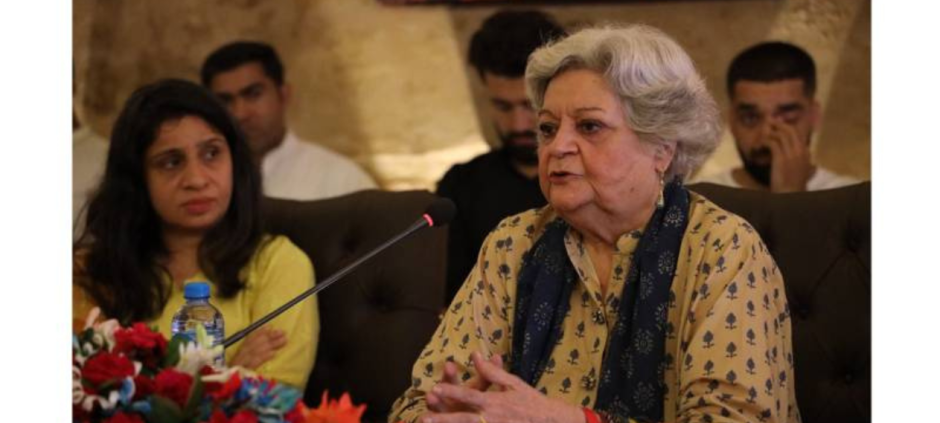Renowned artist and activist Salima Hashmi recently spoke at a special session held at Lahore Fort’s Barood Khan. The event, organized by Aga Khan Cultural Service – Pakistan, gathered young artists, architects, and conservationists to discuss art’s role in society.
Salima Hashmi shared stories about her family’s history, highlighting her grandfather’s journey from a humble cattle herder to a respected diplomat. She explained how his passion for learning shaped their family’s academic tradition.
She also talked about her father, the famous poet Faiz Ahmed Faiz. Salima Hashmi described how his poetry reflected the pain and struggles during difficult times, including his arrest under General Ayub’s regime. She noted that art and literature are closely tied to real events and social issues.
During the session, Salima Hashmi displayed many of her paintings. Her artwork addresses important themes like censorship during Zia-ul-Haq’s rule, domestic violence, the Kashmir conflict, and Palestine’s struggles. She stressed that an artist’s role is to celebrate life and raise awareness about social problems.
One of her paintings, “Friday Morning,” shows how nature continues despite human challenges. Salima Hashmi also shared paintings she created while studying in the US, which expressed her feelings of homesickness.
She spoke about how arts, especially dance, were banned under martial law and dedicated a series of paintings called “Homage to Love” to classical dancer Nahid Siddiqui, who faced restrictions during that time.
Salima Hashmi also recalled a moving moment from Rawalakot, Azad Kashmir. After the 2005 earthquake, a child would sit at a destroyed school daily, showing a strong desire to learn. This inspired one of her powerful paintings.
She emphasized that artists have a social responsibility to respond to events in society. Salima Hashmi shared her father’s belief that “nothing ever goes to waste,” encouraging hope in the younger generation, especially women. She noted that women now outnumber men in universities, signaling a real revolution.
The session left a strong impression on all attendees, highlighting Salima Hashmi’s lasting impact on art, culture, and social awareness.
Also Read: VIP Culture in Government Buildings Comes Under Scrutiny











